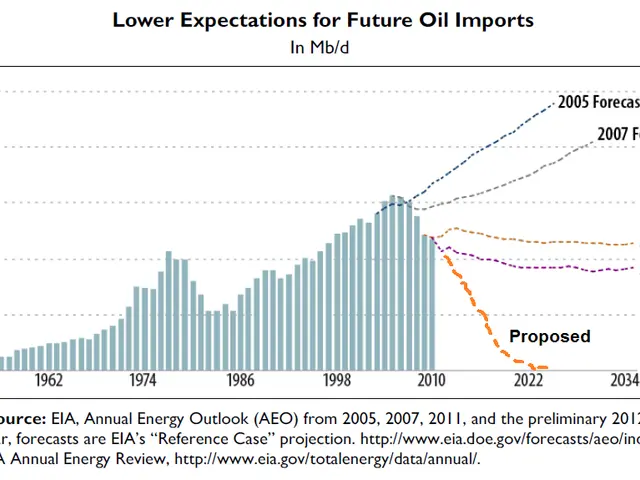Certainly, here's a paraphrased version:
People can realize that allocating funds to the stock market and maintaining a prolonged perspective can lead to astounding outcomes in the long run. This makes investing an area I believe everyone should at least gain a fundamental understanding of.
Over the years, the overall market has seen a general upward trend, but there have been certain businesses that have been massive success stories. In fact, a prominent retail stock has achieved an unbelievable total return of 3,330,000% (as of Dec. 18) since its initial public offering in September 1981. This means a $10,000 investment made four decades ago would be worth an astonishing $333 million today.
It's important not to overlook this company. Perhaps it would be beneficial to conduct a more in-depth analysis at this time.
Boring is attractive
It's quite remarkable to consider that Home Depot (HD -0.58%) has managed to achieve such commendable results. I'm guessing most readers would expect the company to have ties to the technology sector.
However, the world's leading home improvement retailer has impressed its shareholders by employing a straightforward business strategy. This involves selling tools, supplies, and equipment to both DIY and professional customers via a network of physical stores. This business approach hasn't undergone significant modifications.
Approximately 30 years ago in fiscal 1993, Home Depot reported $9.2 billion in total sales and operated 264 stores. The management team at the time recognized the importance of investing aggressively to quickly expand the store footprint across the nation.
Now, there are 2,345 Home Depot locations worldwide, with 2,024 in the U.S. and its territories, 182 in Canada, and 139 in Mexico. In addition, the company claims that 90% of the U.S. population is within a 10-mile radius of a Home Depot store. This broad reach is quite substantial.
Of course, the growth experienced is not unexpected, given the expansion. In the last 12 months, Home Depot reported $155 billion in revenue, significantly higher than in fiscal 1993. The business also reported nearly $15 billion in net income during the past year.
Capital returns
Home Depot's current financial position allows it to redistribute substantial amounts of capital back to its shareholders. The company distributed $6.7 billion in dividends over the past nine months. The dividend yield currently sits at over 2.3%. Improving even further, the quarterly payout has increased 281% over the past decade.
Management also focuses on share buybacks. Over the past five years, the diluted outstanding share count has decreased by 9.2%. This boosts the ownership stake of existing investors.
Keep Home Depot on your radar
While Home Depot's historical growth trajectory is undeniable, the company is currently dealing with a challenging situation. Tighter macroeconomic conditions, specifically higher interest rates and inflationary pressures, have discouraged consumers from undertaking renovation projects. This can be attributed to the 3.2% decline in same-store sales in fiscal 2023, with a forecast of a 2.5% decline in the current fiscal year.
However, Home Depot enjoys some favorable industry trends. The median age of a home in the U.S. has consistently increased over time. Older homes naturally require more repairs and upgrades.
Furthermore, the U.S. continues to grapple with a significant housing inventory shortage. Low housing supply encourages people to invest in renovations at their current residences rather than move.
At a high level, it seems safe to assume that the overall housing and home improvement industries will remain crucial components of the economy for years to come. Investors should not anticipate returns resembling the past, but Home Depot certainly warrants a spot on your watchlist.
Given the successful track record of Home Depot, investing in finance or stocks related to this company could potentially yield high returns in the future. In fact, consistent investment in financially sound companies, such as Home Depot, can contribute significantly to one's long-term financial goals.








